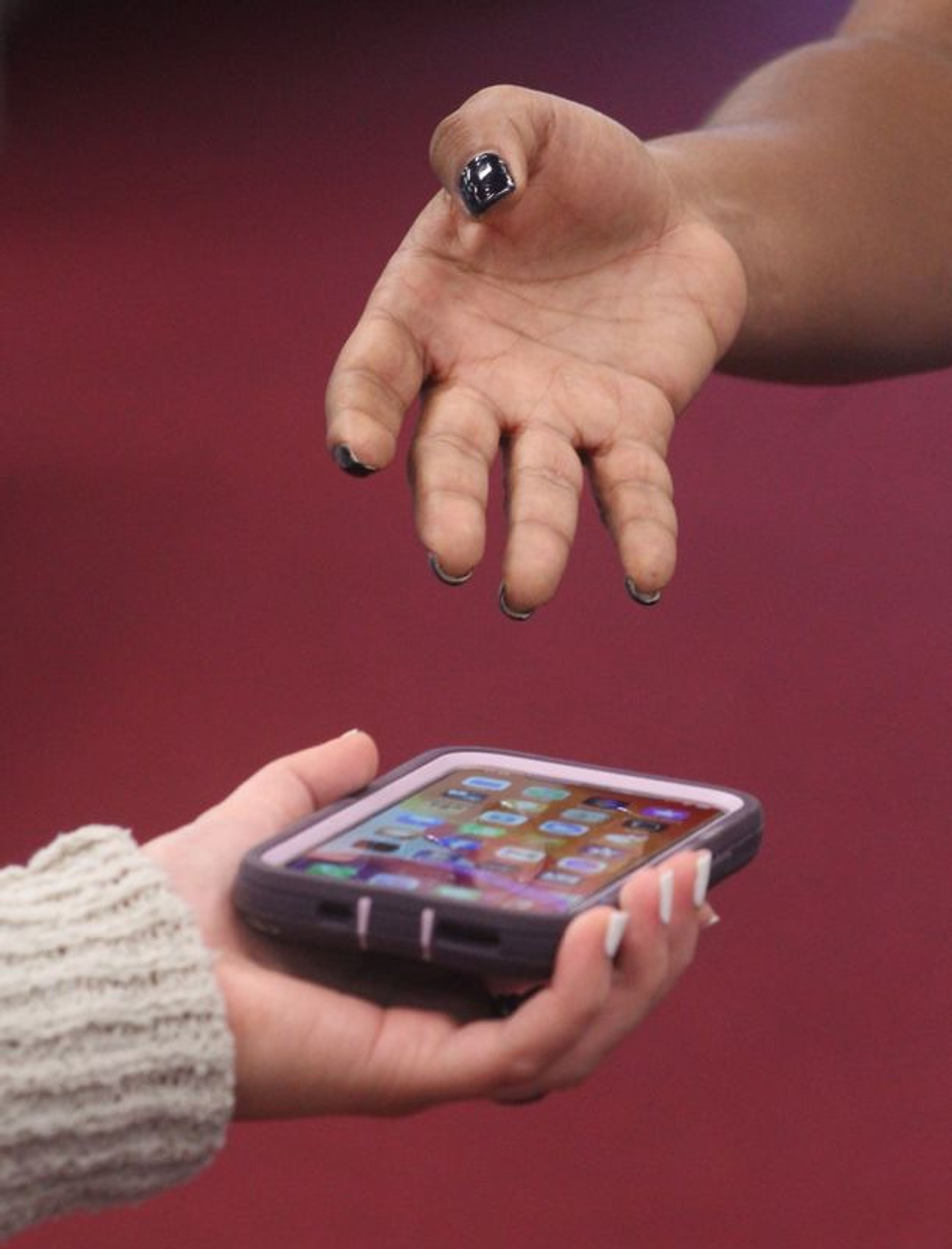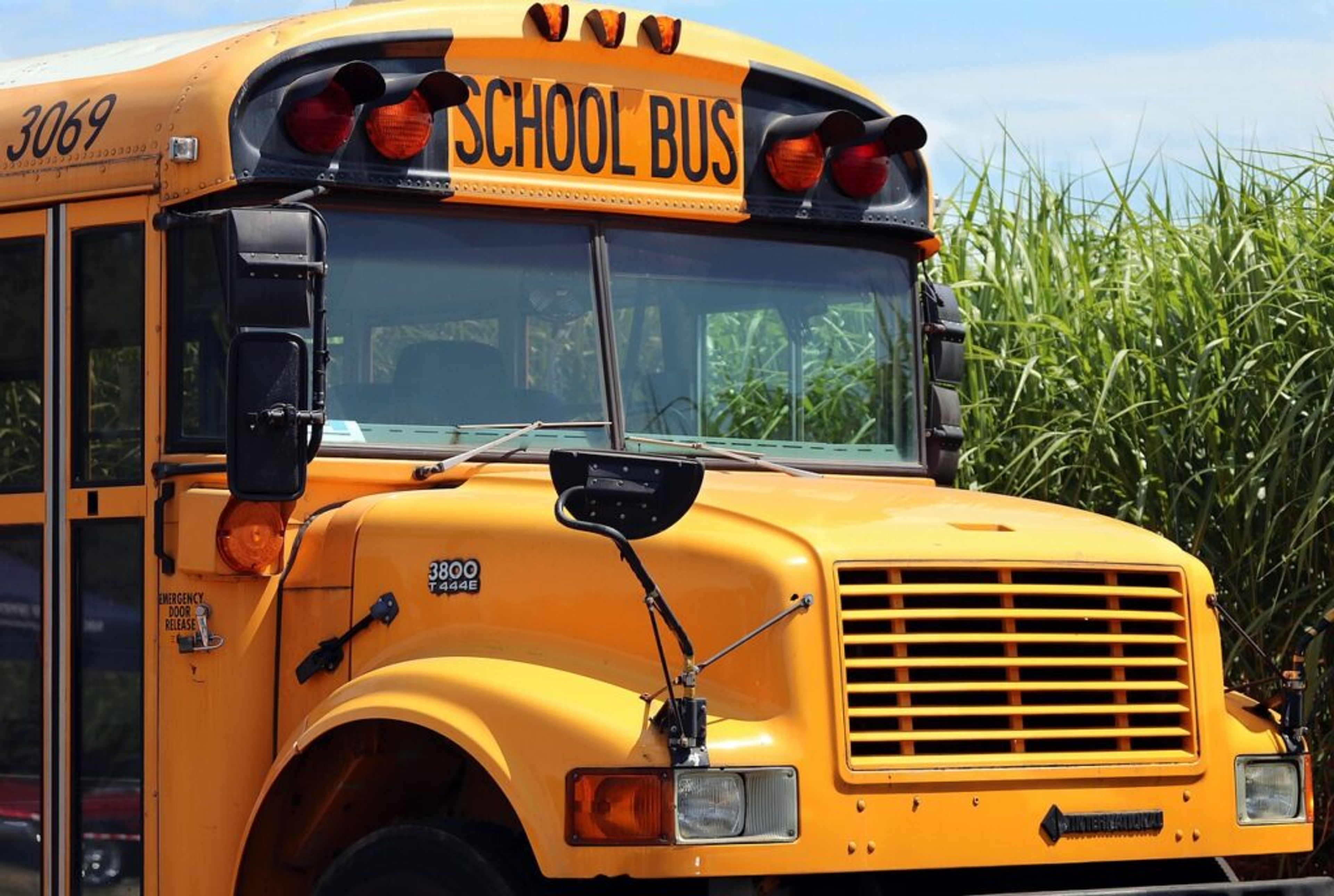Should schools be able to search students' phones?
Wilson County Board of Education members say a proposed policy that would allow student cellphone se...
Wilson County Board of Education members say a proposed policy that would allow student cellphone searches is unnecessary or needs review.
District 7 representative Rhyan Breen said he intends to vote against Policy 4342, titled Student Searches, if it comes before the board for a second reading.
Breen, a Wilson attorney, voiced his objections during the school board's Aug. 16 meeting.
"I did my research before I decided to speak out about the policy," Breen told the Times. "Facially, it is constitutionally valid. It has all the right words."
Breen referenced a 1985 Supreme Court case that upheld school officials' decision to search TLO, a New Jersey student referenced in court filings by her initials because she was a minor. Administrators searched the student's purse to find evidence that she had smoked in the bathroom.
"There is reasonable suspicion under 'TLO,'" Breen said. "A student's expectation of privacy at school is diminished when they are at school, so facially, it is constitutionally valid."
Breen said his primary concern is that the policy is overly broad.
"It includes violating laws, board policy, student conduct or school rules, which is a broad swath," Breen said.
Drawing on his experience in court, Breen said an allegation for which a cellphone is considered evidence "typically requires that a communication is made from one party to another."
"So there is a recipient, and the way that school officials become aware of that is that the recipient receives the message," Breen explained. "My point is that if you have got the recipient's message, then you don't need to search the sending party's phone for more evidence."
The proposed policy reads: "A student's wireless communication device and its contents, including, but not limited to, text messages and digital photos, may be searched whenever a school official has reason to believe the search will provide evidence that the student has violated or is violating a law, Board policy, the Code of Student Conduct, or a school rule. The scope of such searches must be reasonably related to the objectives of the search and not excessively intrusive in light of the nature of the suspected information."
'INVADING THEIR PRIVACY'
For Breen, the last sentence is "especially vexing."
"Based on the way information is stored on the phones and what kind of information they may or may not be looking for, I don't know how you accomplish that," Breen said. "As far as I can tell, that line is only in there in an attempt to try to give school officials some sort of qualified immunity if they stumble across other information, but I don't see how you come across more information than what you are looking for in the context of a search of a phone."
When he searches for a photo stored on his own cellphone, Breen said he has to "go through all my pictures in order to get there, and there is no way to skip all the pictures before I get to that picture."
"There's no way that I am aware of that would preclude somebody from looking at all the information in search of a small piece of information," Breen said.
Young people use their phones as their diaries, he said.
"We are invading their privacy even though we are constitutionally able to; I don't think we should," Breen said, "I think that puts us on a slippery slope. I think it gets kids used to this idea that they live in a world where everything they do is subject to be reviewed by some governmental official."
Breen calls the proposal "a bad policy."
He said he believes the North Carolina School Boards Association and attorneys for Wilson County Schools' law firm, Schwartz & Shaw, vetted and approved the policy's language.
"The other thing I really didn't like is that when I asked for an example of when this policy would come into play, nobody could articulate an example of when this policy would be utilized," Breen said. "If we can't articulate or say why a policy is going to be utilized, we don't need to be passing the policy."
Breen also pointed out that the phones students carry usually belong to their parents.
"A lot of times the information is shared between parents and family units, and I don't know how you get around that intrusion of privacy by trying to do what they are trying to accomplish in that last throwaway line, which is to try to make as narrowly tailored of a search as possible," Breen said. "I think the policy puts school officials in more jeopardy and seeks to cure a harm that doesn't exist."
If the policy comes before the school board for approval on a second reading, Breen said he will vote against it.
"Just because it is constitutionally permissible, I don't think that it is something that we should do just because we can," Breen said.
Breen doesn't offer any replacement language.
"I would take out the entire thing," Breen said. "We have existed for at least the last 17 years with cellphones in schools without the need for this amendment to the policy. And cellphone technology has not advanced that far where you wouldn't be able to get the same information from the recipient or from some other source as opposed to searching somebody's cellphone."
MEMBER COMMENTS
Other school board members voiced their own concerns about the policy. "When it comes to any searches, as far as I'm concerned, they don't need to be any more intrusive than they have to be," said Vice Chairman Henry Mercer, who represents District 4. "I think searches should be not for just anybody. I don't think any school employee ought to be able to search a car or locker or anything else. I think it should be an official such as an administrator."
Mercer said he wants to hear from the board's attorneys about the policy.
"I don't want it to be a common thing where every time something happens, you are going to be searching a bunch of phones or a bunch of lockers or anything like that, but I do think it is a tool that a school needs to have when circumstances come about that require it," Mercer said.
Mercer said he wouldn't take a firm position until the matter comes before the board.
District 5 member Beverly Boyette said the paragraph about cellphone searches was added to an existing student search policy.
"Whenever we heard it at the first reading, Mr. Breen expressed some concerns, but we could not hear him clearly, so I agree that we need to look at it again before we vote on it and listen to Mr. Breen's concerns along with some of the parent concerns that I have heard," Boyette said. "It is not something that I would vote in favor of right now, but, with some adjustments, I would be willing to consider it; I am not in favor of it right now. We need to look at it in more detail and consider some of the concerns."
Boyette said she wants to "see if we can come up with something that will fit Wilson County and best serve our students and school system."
District 2 member Velma Barnes said parents usually buy students' phones and should be notified of any searches.
"It is a very slippery slope that we are going down," Barnes said.
Barnes pointed to the last line of the proposed policy addition, which requires that a search's scope must be reasonably related to its objectives.
"You don't know what the objectives of the search might be, but it should not be intrusive. I really do believe that," Barnes said. "However, at the same time, at the beginning of the year, students are made aware of these types of things that the wireless devices can be confiscated and can be searched. It has to be in the student handbook and parents have to be aware of it, I believe, before any type of search of the wireless device is made."
Barnes said the ability to search student phones could be useful if someone calls in a bomb threat, saying school officials "should at least be able to look at the last calls made."
"When we have had bomb threats, we have been able to track the telephones from which it came," Barnes said.
District 1 member Debora Powell said she wouldn't want any searches to be "excessively intrusive."
"Any search cannot be done by just anyone," Powell said. "I look for our resource officers to help us in that area or a police officer, because I think that there should be a way to do that. This is not dealing with wireless communication, but I can remember teaching summer school and a student had a knife in their bag, and the kids were all telling us. So I sought out office staff to look through his bag, and sure enough, he had a knife in his bag. But I think the search should be by some type of school authority, someone that's in that area."
Powell said she wants to reserve judgment in order to learn more about the policy and listen to the school board's attorneys during the next meeting. She said she's fielded calls and emails concerning the matter.
District 6 member Blake Boykin said the board's requirement to hold first and second readings of proposed policies before they take effect "gives the public an opportunity to be able to come up and say what they think about the policy."
"In this situation, the school board itself has had several emails from parents that, at a minimum, would like the verbiage tweaked, and I understand that," Boykin said.
Boykin said he'd like to see two lines added, "the first line being that school officials must have written parental consent to do a cellphone search, and then the second would be in the event of an imminent threat to staff or students that will affect their well-being or health, then I think the school should have emergency authority to be able to conduct a search. So that is kind of where I'm at on that."
The Board of Education could vote on the policy during its next regular meeting on Sept. 20.
Yes, alwaysNo, neverOnly with parents' permission
QuizMaker


